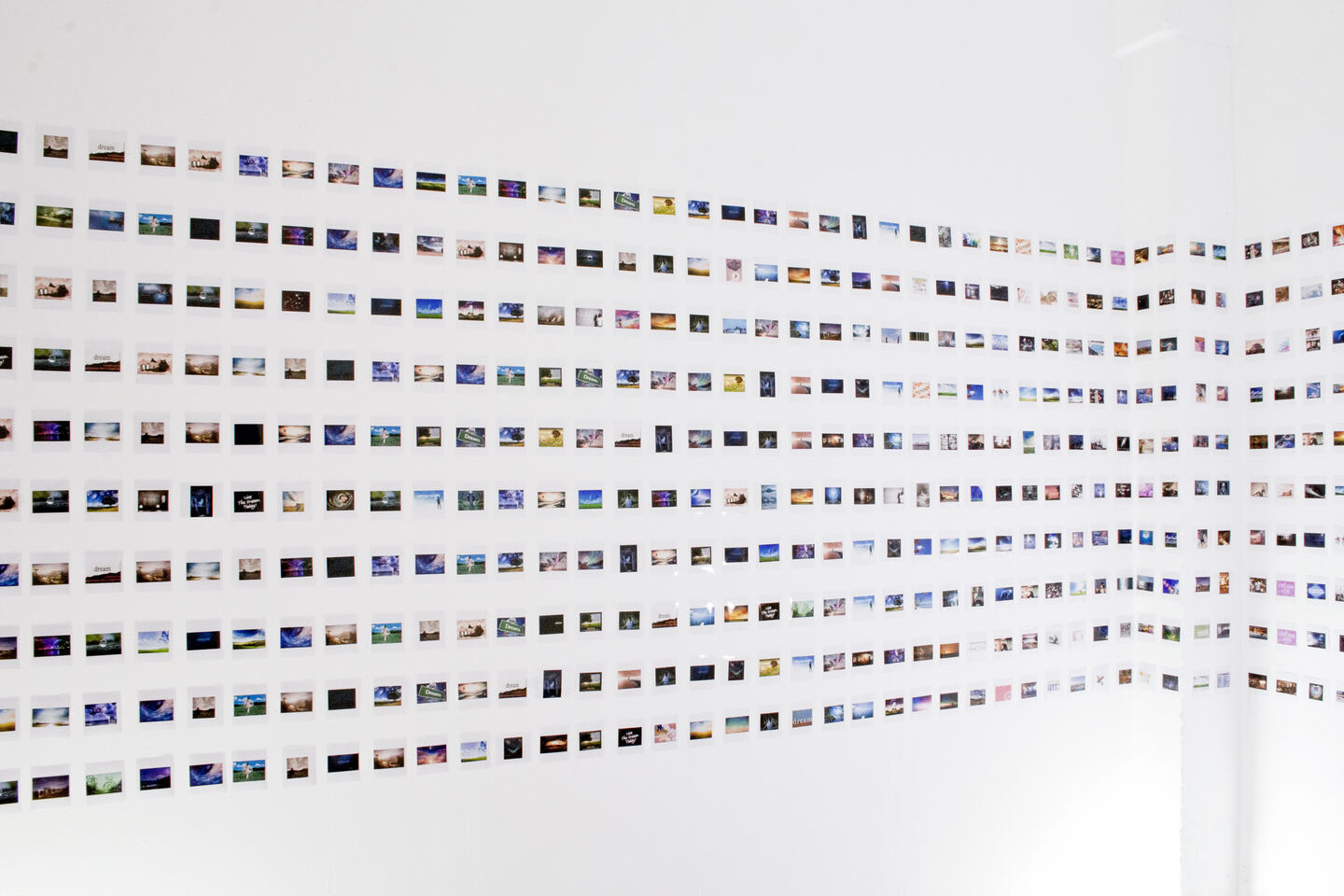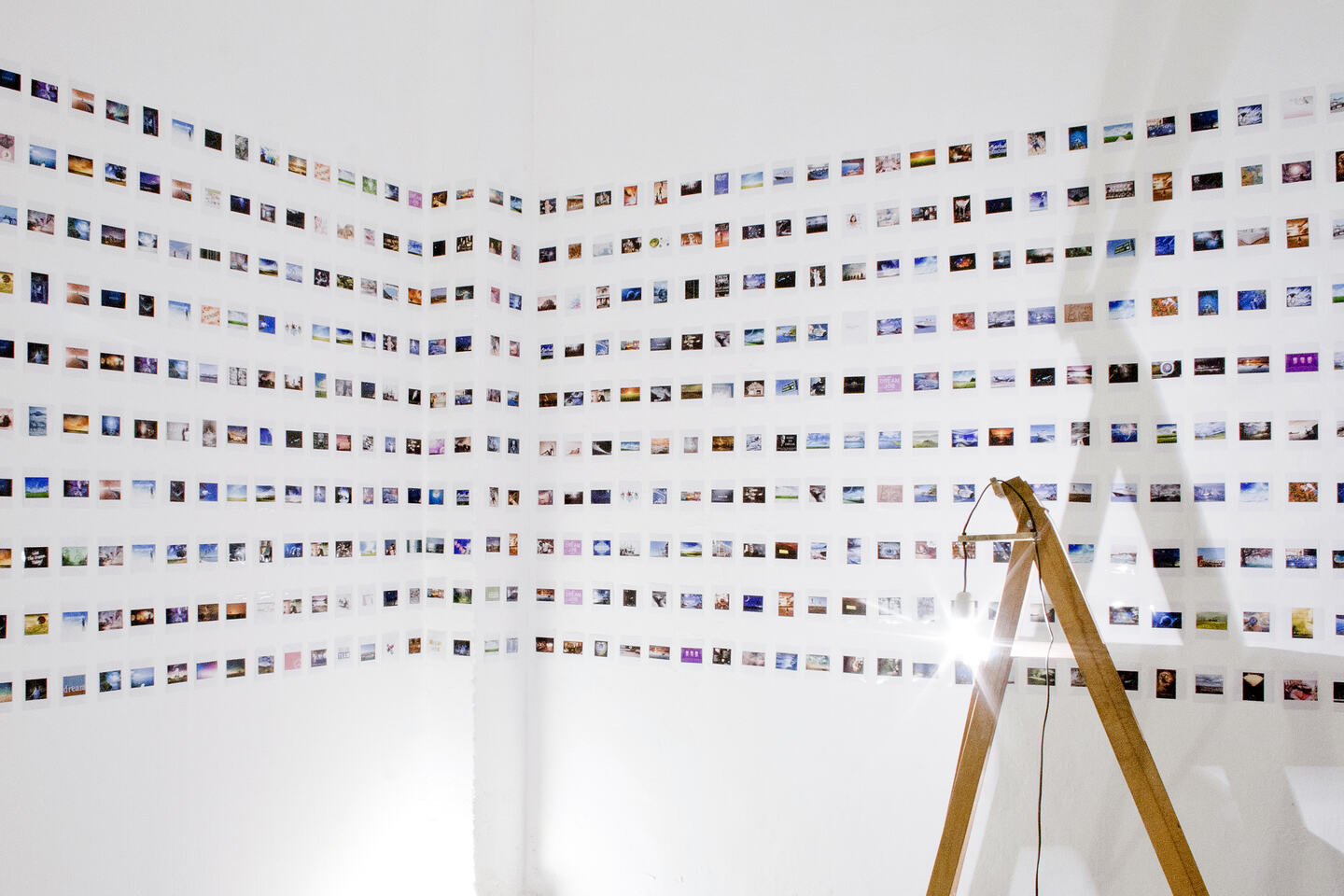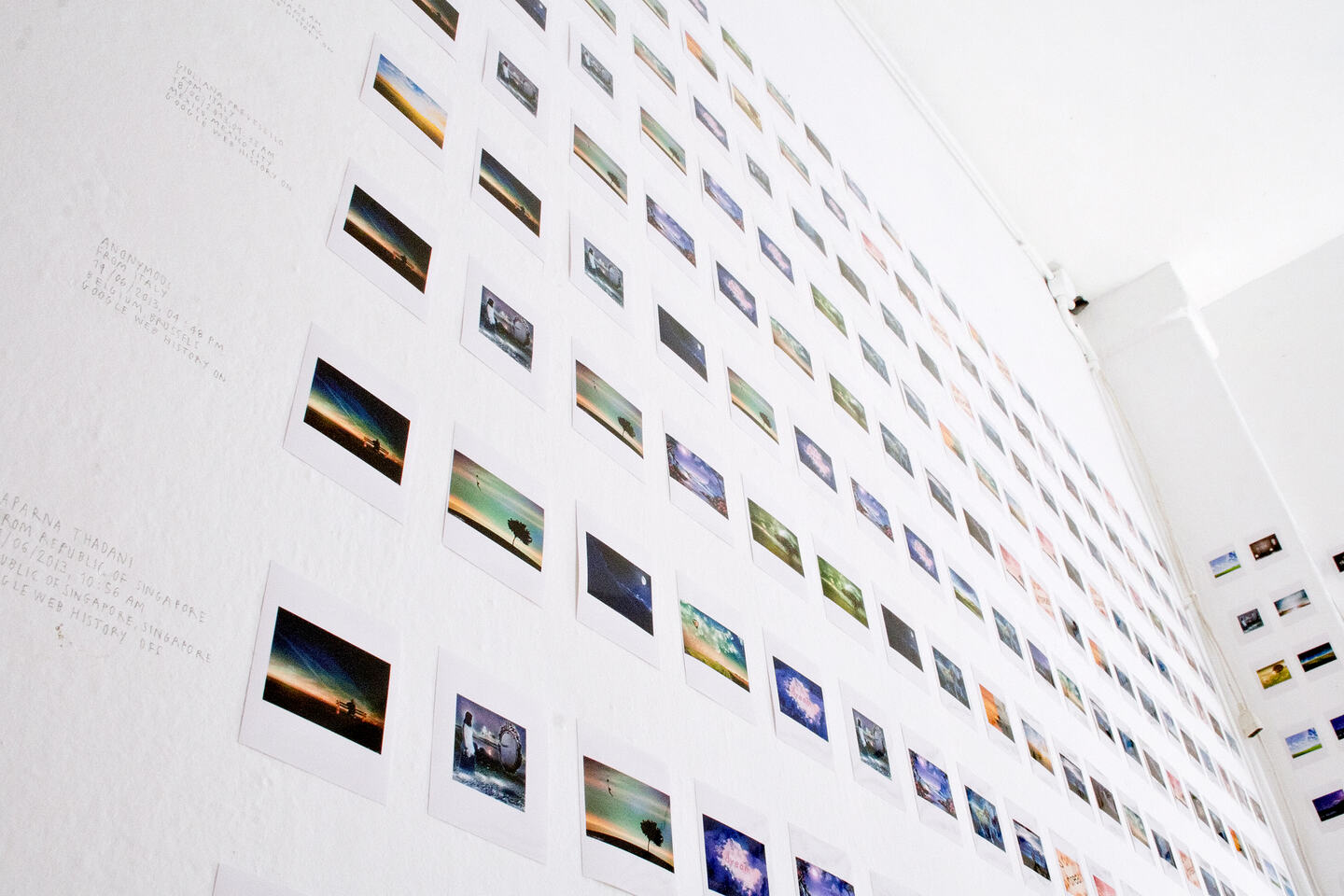- tags
- Google Web History, dream, image search results, information bubble, installation
- role
- co-creator
- responsibilities
- concept, design
- team
- Andrea Buran, Eleonora Sovrani
Currently, every web user is enclosed in a personalized information bubble1 generated by algorithms that they have no direct control over.
Google, the most widely used search engine today, personalizes search results based on both objective data—such as the user’s location, browser, and device—and subjective data—such as whether the user is logged into a Google account or has activated Google Web History. As a result, users’ access to information is shaped by multiple variables.
Magic Cookie aims to investigate this shaping by correlating the different personalized Google Images search results from a sample of ten volunteers from diverse cultures and various global locations.
The experiment required each volunteer to have a Google Account with Google Web History2 turned on. Volunteers were asked to sign into their Google Account, search for the keyword dream in Google Images, and collect all thumbnails from the resulting search page.
-
An invisible revolution has taken place is the way we use the net, but the increasing personalization of information by search engines such as Google threatens to limit our access to information and enclose us in a self-reinforcing worldview.
— Eli Pariser, The Filter Bubble, The Observer, United Kingdom. ↩
-
When you’re signed in, Google personalizes your search experience based on your Google Web History.
— Basics: Search history personalization. Google. Retrieved 10/06/2013. ↩




















